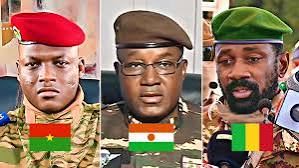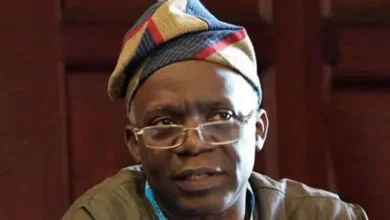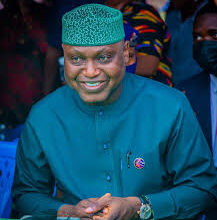Russia in Africa: Whose interest?

By Ahmed Akorede and Abiodun Adewumi
Russia in spreading her tentacles to Africa, the latter is also drawing closer to Russia due to subjective conditions that continue to ensure the continent lay prostrate at the mercy of Western imperialism.
Before the last two decades, Russia has always been present in Africa but not in strikingly significant ways as we can see today.
Apart from playing a very progressive role in the liberation of Southern Africa, Russia had a strong ally in Ethiopia under Haile Mariam Megistu. In the realm of politics, beyond its imagination, Russia set the flame of revolutionary thinking through its numerous alternative, Marxist driven literature which ignited radical thoughts in the labour and students movement across Africa.
To that extent, Russia has been a silent actor in creating a paradigm shift in the philosophies of human existentialism in Africa.
From time past, the Russian magnet has always drawn the ire of the West to the extent that progressive African leaders, from the 1960s have been tagged Marxists. Even a mere expression of compassion for the greatest good of the greatest number by any African leader is seen as ‘Pro-Russia.’
Such leaders were either overthrown through theCentral Intelligence Agency, (CIA), M15 plots. Africa saw this happened in Ghana (Kwame Nkrumah), Congo (Patrice Lumumba) and in Togo (Olympio.). In Nigeria, progressive socialist leaders have either been frustrated, isolated from mainstream politics or even exterminated. Chief ObafemiAwolowo who ruled the South West area of Nigeria was believed to the pro-Russia prompting local and international conspiracy against his Democratic Socialism theory which within eight years, had transformed the South West region (1952-1959) from an agrarian society to the global map. Awolowo did not only introduce free education, he also introduced free health services, two uplifting programmes that the British colonial lords criticised and degraded at its infant stage, but which turned out to be a huge success.
The conspiracy against Awolowo led to the Nigerian civil war which lasted for 30 months and entrenched reactionary forces on Africa’s biggest democracy.Today, Russia and Africa are seeking a more reinvigorated alliance. The material conditions in the world is bound to bring the two together.
This development has found expression in the recent political development in the Sahel. The developments in Mali, Burkina Faso and Niger portends the whirlwind that is building up in Africa. Western media has continued to describe the new leaders of Mali, 6Burkina Faso and Niger as ‘Junta’ underscoring their contempt for the overthrow of Western hegemony in those countries of the Sahel.
Colonial legacy and the emerging resistance
Perhaps, one of the devastating blows to France in Africa is the expulsion she faced recently when Burkina Faso put a stop to age-long military alliance between France and her former colony. Mali and Niger have done the same by expelling Western military from their territories after decades of relationship that witnessed spineless exploitation of indigenous resources especially Uranium. In April this year, France expelled three French diplomats with the Western country denouncing the act saying there were ‘no grounds.’ The Burkinabe leader, Ibrahim Traore since he came to power in 2022 has moved towards Russia which opened its embassy after 30 years of shut down. In August 2022, France announced the departure of French troops in 2022 following Mali’s quit notice. By September, 2024, the US is expected to withdraw all her troops from that country.
Burkina Faso is an ancient country populated by hunter-gatherers dating back to 14,000 BCE to 5000 BCE. The largest ethnic group are the Mossi people which settled there in the 11th century beginning from 1890s, the Western invaders began to visit what is now known as Burkina Faso. Also in 1892, France had declared Mali her colony while Niger, by fiat became French colony in 1922. Decades later, the three countries fought and obtained independence from France.
However, this was to be a paper tiger. France continued its policy of assimilation and domination, dictating the pace of development and imposing political leadership backed by savage exploitation of natural resources to the disadvantage of the people. France also held the three countries captive through military alliances to ‘protect’ the puppet regimes and the establishment of military bases. While France claimed to be helping the countries to ward off insurgency, in reality, the West is believed to relish in the violence in order to keep the countries unstable and dependent on France.
African countries that ally with the West remain relics of anguish and agony. Literacy remains low, at 30% in Mali for instance while life expectancy remains one of the worst in Africa. Access to the essentials of life is extremely poor while France sustains a chain of corrupt, inept and criminal puppet regimes who siphon public funds leaving their country poor and underdeveloped.
It was these subjective and objective conditions that produced the revolutionary upsurge in Mali, Burkina Faso and Niger. Many Africans are watching. The successes of these countries is bound to have ripple effects across West Africa.
After more than a century of exploitative relationship with the West, many African countries are asking basic questions about the benefit of such a marriage that skews everything in favour of the bride. Today, sub-saharan Africa remains the poorest in Africa inspite of the timeless working relationship with the West. The region is bedevilled by poverty, war and misery. Corruption has become a way of life while the 16-member West African bloc remains solely dependent on the West for as little as tooth pick and stable water. West Africa rich in oil, gas and mineral resources is continuously exploited, debased and gang-raped by the West leaving the citizenry in a state of economic stupor. These satellite states of the West continue to look up to feeding bottles provided by the West in the area of public health, industry, education, security and agriculture backed with imposed policies of the International Monetary Fund, (IMF) designed to ensure West Africa remains primarily a raw material hub. For the West, Africa should be a footnote, a commodity to be traded in the international market. Africans should remain objects to be exploited for profit.This explains why the West has been jittery with the shift of alliance by Mali, Burkina Faso and Niger.
The crisis in Ukraine and Africa
While the crisis in Ukraine lasted, Russian emergent presence in Africa is surely one of the calculus for the West military backing of Ukraine in clear show of vengeance and revenge. This explains why for many progressive Africans, it is important that Russia defeats NATO that currently uses Ukraine as a guinea pig in its political and military experiments. The NATO agenda in Ukraine is not just to establish a military foothold to encircle and exterminate Russia, but also to stunt Russian offer of helping hands to Africa, that the West currently breathes down her neck. It is a shame that while NATO condemns any voice in support of Russia, and countries that seeks to mediate, NATO is quick to offer her best military hard and software to Ukraine. It is ridiculous, that NATO offers billions of dollars in aids to Kiev, but has not at any time offered medicine or grains for millions of Ukrainians currently displaced by the special military operations.
The hypocrisy of the West has come full blown. The West wants a monopoly, one dimensional world that is in her palms. Russia is leading the resistance against the emergent one-dimensional world dominated and dictated by Western values, including its vain, vilest morality. This is why the developments in the Sahel, is inspiring to many Africans. Among many young Africans, theintervention in these countries by the new military leaders was revolutionary in content and form. The populist programmes being introduced by the leaders of these countries, their radical posturing, the courage to challenge Western hegemony and the severance of ties with exploitative West continue to inspire many young Africans who have suffered in silence the Western puppets that have governed and mismanaged their countries. The three countries are not the most notable on the African map, but surely, their transformation may actually be what will upturn many African countries from the slave-relationship with the West into the land of freedom, justice and equity.
Ahmed Akorede and Abiodun Adewumi are leading officials of Apapo Oodua Koya, the Yoruba self-determination group based in Nigeria.





